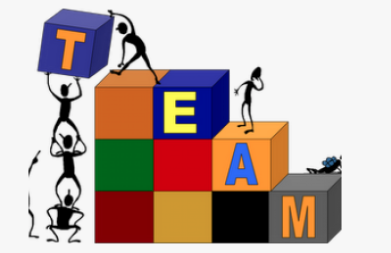9 Enterprise 3
Section outline
-
Kia ora koutou and a very warm welcome everyone to Social Enterprise!
During the first week we are going to get to know each other better and look at the course expectations.
Our learning outcome for this week is to be able to understand the definition of Social Enterprise and to be familiar with the different concepts in Enterprise.
Enjoy the first week back and remember to keep an open mind about new ideas (think outside the box). I am sure we will enjoy our learning journey together and make great progress! If you need to conctact me I am in Mountans whānau (M10) or email akeung@mhjc.school.nz
Matua Anthony
-
Kia ora koutou,
This week we are going to look at what business is and the role that business plays in our lives.
Learning Outcomes
By the end of the week you will be able to;
- Describe why business is needed.
- Recognise how business influences our lifestyles.
- Define business
- Describe the essential elements that exist in every business.
-
Kia ora whānau. Just a reminder that your Enterprising Qualities assessment is due on April 28th. The work is on google classroom and the assessment should be submitted on classroom.
Class code o4eg33h
Remember I am available during school hours 9am-3pm online to answer questions and help with anything you need. Please check emails also for google meetings during our normal timetable.
-
What is Social Enterprise?
Watch the video below and and answer the following questions:
- Define social enterprise
- How are they different from normal businesses?
- What are the goals of social enterprise?
- How is a social enterprise different from a charity?
- What can we as individuals or households do to help achieve some of these goals?
- What are the benefits of social enterprise for society?
The United Nations Sustainable Development Goals

https://www.un.org/sustainabledevelopment/sustainable-development-goals/
Go to the website above and choose one of the goals and read more about that goal. Complete the following tasks"- Define the goal.
- Describe why achieving this goal is important for our future lifestyles.
- Identify a few facts & figures that highlight why we need this goal.
- Choose one of the targets for that particular goal and think about things that we can do individually, or as families that we could do at home or school to help achieve this goal.
- Identify a business (preferably in NZ) that addresses this goal.
- Brainstorm some ideas for a business in NZ that could address this issue.
-
Learning Intentions: We are learning about
Different business roles in an enterprise
Success Criteria: I can
Describe the functions of different business roles
Form a business team according to our strengths and skills
Activities
You are going to set up an enterprise with five essential roles: the Chief Executive Officer, the Marketing Director, the Operations and Production Director , the Communications Director, and the Finance Director.
Research and describe in detail what is expected of each role
Find an example of each role and explain what that person did to fit into that role
Write up a one-page CV to compete for one of the roles. Your CV should include your areas of knowledge, your skills, your attributes and extra information about you, such as hobbies and previous work experiences which might help you to land the role.
-

Learning Intentions: We are learning to
Set up and manage a team
Success Criteria: I can
Form a business team according to our strengths and skills
Make our team run smoothly
Activities
Pass everybody’s CVs around the team. Each team member is to read the CV and write down on the back of the CV which of the roles you think he/she is best suited to (you may write down up to two roles for each CV you have read). You are not allowed to write on your own CV.
Once everybody has finished, find out what role(s) other members thought you should be doing.
Have your first team meeting. At the meeting you need to
Discuss the roles in your team and keep a record of it. Make sure everyone understands and agrees with what is expected of them so that they will be held accountable for their tasks.
Discuss the team goals.
Draft a simple rule for team meetings to avoid conflict ( who is going to take minutes for the meetings? Who will be the chairman of the meeting? How do you deal with disagreements?”)
